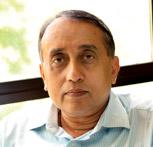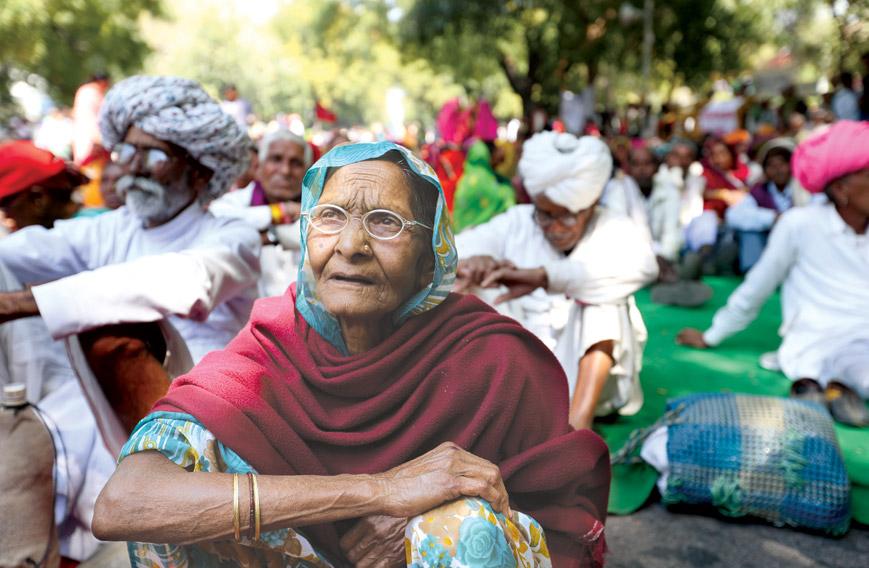
MATHEW CHERIAN
It has long been alleged that one reason people in developing countries have so many children is for old age security. Without reliable saving instruments or public pension programmes, children will be the best bet. And because infant and child mortality rates are high in poorer states, having a large number of children helps ensure that at least some children – of the ‘right’ gender – will survive to provide support in old age.
However, with migration of children, older parents in many rural areas are left to fend for themselves. In a district like Pathanamthitha in Kerala, where I come from, one in three people are old which is the likely future scenario after 2040 for most of India. In most houses there are only older people living alone. Their sole companions are their pet dogs and cats. Some families have more dogs and cats than human beings for companionship. If this future is not to fall on all of us, we will have to create alternative pension systems for India’s elderly.
Only a good pension system will help India’s elderly if we are to avert an old age crisis. In industrial countries and most low-income and middle-income countries, governments have developed formal arrangements for old age support. An estimated 30 per cent of the world’s elderly are covered by these formal arrangements, and 40 per cent of the world’s workers are contributing with the expectation of being covered when they grow old. The answer to these pension system questions determines how a country’s old age security system affects the economy and how its benefits and costs are divided between old and young, rich and poor.
Studies by Dr Rajan of the Centre for Development Studies (CDS), Thiruvananthapuram, have shown that pensions are used very well by the elderly and help improve the economy. Our neighbouring country, Nepal, has a universal pension system, but not its superpower neighbour, India.
Recently, Aruna Roy, Convener of the Pension Parishad, was in Delhi at Jantar Mantar in early December along with thousands of older people, some from Rajasthan, some from Uttar Pradesh and Bihar, demanding universal pension for all older people. Aruna Roy recounts how she met an elderly woman in a village in Rajasthan living on a meagre Rs 50 per month keeping body and soul together. Unless Indians get universal pension, old age will be a misery. Can we improve the dignity of India’s older people and treat them better?
What is this universal pension? India, from the 1990s, had an old age pension scheme for very poor old people who were Below Poverty Line (BPL) cardholders. We call this a means-tested pension which is available only to the really poor. This started in 1992 with a plan allocation of just Rs 75 per month per person and then increased to Rs 200 per month per person in 2003. This currently reaches about 12.5 million BPL cardholders, according to the Ministry of Rural Development. But it leaves out about 60 million older people who do not get any pension or social security and do not have a living wage after 60 years.
How do we ensure they live with dignity? Pension Parishad advocates that all elderly, who are not taxpayers, are given a living wage of Rs 2,000 per month which is half the amount of wages that will be available if they worked under the Mahatma Gandhi Rural Employment Guarantee Act (MGNREGA). This universal pension is likely to be the solution for hunger for the marginalised elderly in India. Fifty-five million elderly, almost the whole population of the United Kingdom, go to bed with no food to eat, which is very cruel for a country with overflowing food stocks and claims of being a superpower. Social security systems in India face increasing financial pressure, particularly during times of economic crisis and high inflation, and are absent for almost 90 per cent of the population.
The Government of India (GoI) launched a scheme in 2010 called the National Pension System (NPS) or NPS Lite, a low-cost model aimed at economically disadvantaged sections of society. For the weaker and economically disadvantaged sections, this is a pay-and-build model of pension for securing old age income security and involves small amounts which builds up an NPS Lite account. This would help part-time workers, auto-rickshaw drivers, vegetable vendors, fish workers, hawkers etc. However, NPS Lite and its predecessor, the Swavalamban Scheme, have not had great success despite strong promotion from the GoI.
Ninety per cent of India’s 100 million elderly do not have pension or social security. Ensuring social security is like ensuring a ‘living wage’ which is offered when you cannot work or earn your living. We call it a ‘social wage’ which is a core entitlement that must be fulfilled by the state and society. Many civil society groups like HelpAge India, Pension Parishad and Baba Adhav from the Hamaal Panchayat have been demanding universal pension.
Unless we do this, in future decades we will have a tsunami of old age distress. India’s 100 million elderly will grow to 200 million by 2035. The demographic dividend, which we now have, will be over by 2035 and will become a demographic burden. We have a small window of 20 years during which we have to create a pension policy for India’s elderly or we will be overtaken by the tidal wave of sheer numbers.
This old age crisis will then be very hard to avert. We must act now.
Mathew Cherian is CEO of HelpAge India
Comments
Currently there are no Comments. Be first to write a comment!




